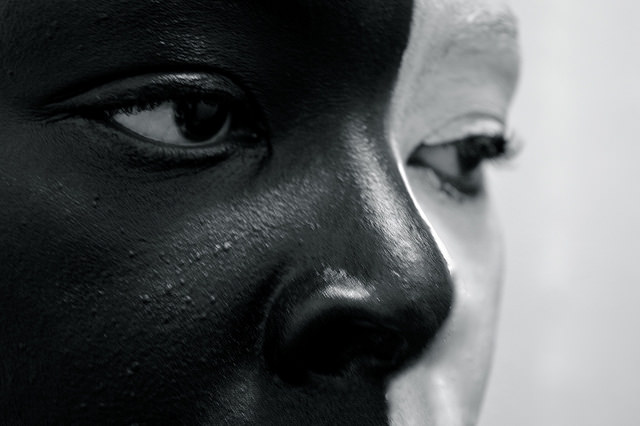“Oneness” has become a buzzword. Espousing that “we are all one” is like New Age code for, “Hey, I’m with the band!”
Nevertheless, how are we to apply concept of oneness in response to the physical problem of institutionalized racism and individual acts of prejudice?
Racism seems to be one of the last frontiers for our collective evolution, particularly in America. On December 28th, 2015, a grand jury decided against the indictment of the Cleveland police officer who shot and killed Tamir Rice, a 12-year-old African-American youth. Though not the beginning of American racial tensions, this latest event provides us all an opportunity to put our beliefs on trial.
Although so many of us believe in the unity of humankind, reactions to racial tensions often involve using our oneness as a blindfold (“We are all the same”) or a gag (“Stop focusing on our divisions”).
Sathya Sai Baba shares his insight this way: “It is because the doctrine of human unity based on the spiritual oneness of all beings, is not propagated in the right manner that we have today many divisions leading to many conflicts.”
We are all one—but we are not the same. It is our aversion to difference that creates division.
My children are constantly asking me questions: Why is that person so big? Why is his hair red? Why is she in a wheelchair?
Children see differences and respond with curiosity. We adults often respond with discomfort: Don’t stare. Do not see our differences. Don’t say that. It is improper to acknowledge our differences. C’mon. Let’s finish shopping—ignore our differences.
A paradox of our universe is that equality is the result of difference. During a “Zen Talk” Shunryu Suzuki, author of “Zen Mind, Beginner’s Mind” makes clear that:
“Differentiation is equality…To be different is to have value. Each thing has absolute value and thus is equal to everything else. The usual understanding is that differentiation is the opposite of equality, but our [Buddhist] understanding is that they are the same thing. If you only see from the perspective that says one is different from many, your understanding is too materialistic and superficial.”
Valuing our differences is not the same as differing our value. A peach tree is not a bonsai. Recognizing the equality of our differences is one step towards becoming active in changing our internal prejudices and external racist structures that place a hierarchy of value on our differences. Oneness is not our physical and cultural sameness—oneness is the sameness of our inherent worth and equal access to inalienable human rights.
There are many things dividing us, but race is not one of them. What is dividing us is the ease with which we selectively distribute empathy.
The facts regarding inequities in income, access to healthcare and education, incarceration rates and sentencing for people of color are clear. What is it within us that allows us to intellectually reason away suffering or ignore the experiences of others? Or to feel justified in limiting another’s humanity in response to injustice? We can process these facts of inequalities with our minds. However, our collective unity necessitates that we process the experiences of all people with our hearts.
Some would say: “Race and Gender are made up concepts. We are not our bodies. We are the souls within.” Yes, I agree! However, our physical bodies provide us a powerful vehicle for self-reflection and growth—and race in the 21st century is one of our many teachers.
Racism is a collective wound, whereby all of us need healing. If mindfulness is to be a mode of interaction—and not just a spiritual trend—a discourse on race cannot be shied away from. The social construct of race is imaginary, yet the social, political and economic effects on all of us are real.
Racism and prejudice are merely physical characteristics of our inner resistance to love. Intellectual understanding alone is not a requisite for reconciliation. Our job is to shine the light of our awareness on our own divisive thoughts, beliefs and actions. Then we will be equipped to use our intellect and hearts to actively assuage suffering and use love as a balm whenever and wherever there is an outcry for healing and hearing.
Rumi expressed our mission in this regard best by saying, “Your task is not to seek for love, but merely to seek and find all the barriers within yourself that you have built against it.”
After doing so, we can co-create a world where we see in each other’s faces a vibrant, unique soul worthy of appreciation, protection and love. A world where true oneness is the right and responsibility of all.
.
Relephant:
Yoga, Racism and Creating a Future of Equality
.
Author: Candice Laine
Editor: Yoli Ramazzina
Photo: Flickr/Chrisena Allen







Read 4 comments and reply